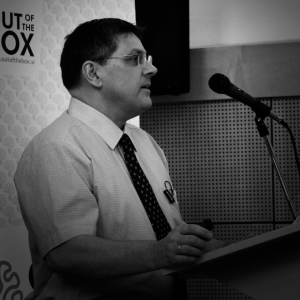Global Computing for our Complex World
Steven Bishop | UCL, London
tehnologija
- What is the power of information to explore social and economic life on Earth?
- How can we use information and communication technologies to discover options for sustainable future?
- What is FutureITC project and how will it work?
Today, society and technology are both changing at a pace that often outstrips our capacity to understand and manage them. As the recent financial crisis demonstrates, the systems that we have built to organise our affairs now possess an unprecedented degree of complexity and interdependence among their technological, social and economic components. This complexity often results in counter-intuitive events driven by positive feedbacks that lead to domino-like cascades of failures. Neither the precepts of traditional science, nor our collective experience from a simpler past, adequately prepare us for the future. We need systems put in place that prevent conceivable failures and allow us to quickly recover from those that we cannot predict. At the same time, policy makers are faced with major decisions of how to plan our services and the general infrastructure of services to cope with the demands of today, and what is more, to do so in a sustainable manner. The same decisions are also posed to individuals who wish to improve their own lives. Thus the need to understand our complex world is the most urgent human challenge of the 21st century.
The FuturICT project aims to develop a visionary system formed by a collection of models that are linked to data, which form a platform from which further advances can be made. The project will use, and further develop, modern information technology integrated with the rest of science, producing a system that can produce pluralistic outcomes which will form a ‘policy wind tunnel’ for the development and testing of policies in the face of a complex and uncertain world. Such a system would gather and process data on a massive scale, giving politicians, business decision-makers and citizens, much better knowledge on which to base their choices The knowledge gained from exemplar case studies will lead to greater understanding of the over-arching concepts of sustainability, resilience and trust as well as providing solutions to individual challenges.
Steven Bishop
